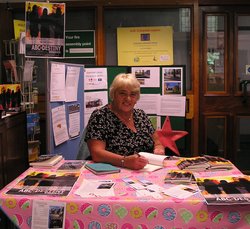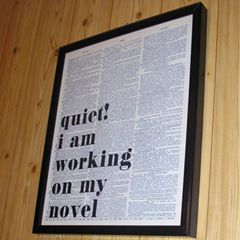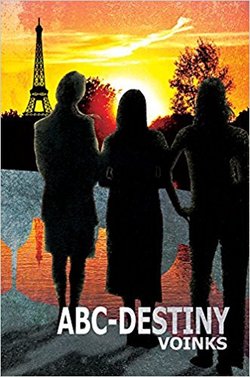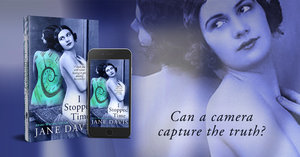Today, I’m delighted to welcome Val Portelli to A Day in the Life, my occasional interview series in which authors give an insight into their writing routines, rituals and superstitions.
Despite receiving her first rejection letter aged nine from some lovely people at a well-known women’s magazine, she continued writing intermittently until a freak accident left her housebound and going stir crazy.
To save her sanity she completed and had published her first full length novel. This was followed by a second traditionally published book before deciding self-publishing was the way to go. In between writing her longest novel to date at over 100,000 words, she publishes weekly stories for her Facebook author page and web site.
She writes in various genres, although her short stories normally include her trademark twist of ‘Quirky.’ From having too many hours in the day, she is now actively seeking out a planet with forty-eight-hour days, to have time to fit in all the stories waiting to be told.
She is always delighted to receive reviews, as they help pay for food for the Unicorns she breeds in her spare time.
Q: Val, before we get started, I just wanted to clear up any confusion. You publish your novels under the pseudonym, Voinks. Why did you do this, and do you think pen names make a difference to an author’s profile?
My pen name is Voinks, which started off as a joke nickname when a friend bought a holiday home abroad, then gradually spread through the family, so it was an obvious choice when my first book was published.
I adopted a pseudonym mainly because I think of me the writer, and me the person, as two separate individuals, although they are now starting to overlap. I know of some authors from small towns where it would be embarrassing and uncomfortable for their families if their true identity was publicised. It’s a useful tool if you are known for writing say erotic romance, and then decide to publish children’s books. The author brand for each profile would need to be adapted to suit the genre.
Q: So having got that out of the way, why do you write?
These characters in my head are such a bolshie lot! They never give me any peace until I’ve typed up their story; then as soon as I’ve kept them happy, some more start insisting it’s their turn.

Q: Where do you get your inspiration from?
Anywhere and everywhere. My computer currently has over 100 files with a title, an idea, and the source of the inspiration, waiting for their stories to be written.
Q: John Irving says that you can’t teach writing. You can only recognise what’s good and say ‘keep doing that.’ Do you think that’s true?
Yes and no. In the same way that some people have an eye for photography or painting, I believe there is something in our nature which makes us better at certain things. Once you have found your niche, then it is possible to improve it by learning the mechanics of shutter speeds or protagonists.
Q: You write both short stories and novels. The short story is a more recent idea than the novel. We are constantly being told that readers have decreasing attention spans. Does this mean that ‘shorts’ are receiving a surge in popularity?
Officially short stories aren’t ‘marketable’ but with the pressures of a fast-changing life I can see them as a popular replacement for the once ubiquitous magazine. I can also see a rise in popularity of Audio books in the near future.
Q: Do your novels and short stories differ significantly?
My novels tend to fall under the genre of contemporary women’s fiction, with a hint of suspense and a bias towards romance. The shorts are great as they allow me to dabble in everything from fantasy, mystery, and ‘true-life’ animal stories, to the paranormal, gay and humour.
Q: Name five things you wish you’d known before you published your first novel.
That marketing is mainly down to the author whether you are traditionally or indie published.
That the writing community is one of the most supportive and helpful imaginable, especially for newbies.
That you can’t publish your novel and sit back waiting for it to hit No. 1. There’s a rocky road ahead, with so much to learn along the way.
That stocking up in advance with chocolate, tissues and wine (along with friends to commiserate and cheer you up) is a good idea.
That it will get in your blood, and there’s no turning back.
Q: John Green says that writing is a profession for introverts who want to tell you a story but don’t want to make eye contact while doing it. Is that how you see yourself?
I am a little like that. Even when I was young I disliked using the phone, except for one aunt who could talk for England, so I only had to say Hello and Goodbye. I still prefer the written word, although I’m not sure my friends would agree with me once I get on a roll.

Q: Do you have a readership in a country other than your own?
I was surprised to discover a teacher in Syria is one of my followers, and has introduced colleagues to my work. Although it won’t provide a boost to the sales of my books, it made me feel very humble to think my writing provided a few minutes respite from what must be an horrendous daily situation.
Q: Jodie Archer tells how, when she worked at Penguin UK, she found that manuscripts by new authors were too ambitious, like a painter who can’t settle on one colour and uses the whole paint box. How has your writing style changed over time?
This is both an interesting question and useful information. By coincidence I was just looking back over some of my short stories to find a reference, and I was surprised how much my style has changed, and hopefully improved, over the years. The basic quirky with a touch of humour is still visible, but I’ve learnt that readers too have an imagination, and it’s not necessary to use every word in the spelling box. We all see things in an individual way so ‘showing not telling’ actually improves the colour blend.
Q: Are you looking to entertain or illuminate?
Predominately to entertain, although it’s surprising how much you learn, even from fiction. As a writer I’ve discovered so much from research, and from networking with authors in other countries. Did you know an octopus has no skeleton, is highly intelligent, and has three hearts?
Q: Do you incorporate any real life characters into your writing? If so how?
My first book *Changes was based on a conglomeration of people and events from a number of years. The library was an actual place, and although it was closed so I never saw the interior, the man walking away was exactly how I imagined the owner. Unfortunately, I never met the main character (who was Gawjus), but friends recognised him as the man who was the love of my life.
*You can watch the trailer for Changes here.
Q: I just stumbled across this in an article by Adam Haslett. ‘A psychiatrist friend once pointed out to me that one of the definitions of psychosis is a fixed belief in an imaginary world lasting months or years, which no one but the patient himself is able to perceive. He wondered aloud if this wasn’t also a decent definition of a novelist.’ Do you think he has a point?
Fortunately I’m not the only one who believes in Unicorns and dragons. We know so little of our own world, yet alone other planets, that perhaps psychosis is just another name for seeing things others have yet to see. You’ll be telling me next that man will one day land on the moon, and Father Christmas doesn’t exist. (Any children reading this, remember adults can be daft sometimes too.)
Q: Do any of your books have dedications? If so, to whom and (if appropriate) why?
When I wrote ABC Destiny I needed a name beginning with D for my main female character. Nothing seemed right so I invented the name Delphine. Shortly afterwards I met a lady actually called Delphine so a dedication seemed appropriate. It was also dedicated to my mother who died shortly before it was published.

Abigail has a middle-class upbringing, Beatrice has to grow up fast as life is tough, Cecelia is part of the privileged elite. All have different backgrounds, but what do they have in common?
Visit Voinks’ Austin Macauley Publisher’s Page
Q: Twenty words on why one of your books should be a reader’s next read…
Release a poor, struggling author from the chains of being tied twenty-four hours to a computer. Also, you might enjoy them.
Q: Is it true that you should never say anything interesting to an author because it’s bound to end up in print?
Yes, but equally if you say something boring that could be used for a character trait in a novel. Please talk to us, we need the input, and authors need friends too.
Wow. I can’t believe how the time has flown. What was it I said about being too shy to talk much? I’d better stop now before you despair of me ever shutting up. Thank you, Jane, for having me and asking such fascinating questions. It’s been a real pleasure and certainly got me thinking.
Q: I’m not letting you go until you tell us where we can we find out more about you and your work.
Anything else you would like to know, please ask. It’s a great encouragement when readers are interested and you realise you are not just talking to yourself (or your characters).
Facebook: www.facebook.com/Voinks.writer.author
Amazon Author Page, with details of all publications.
Blog: www.Voinks.Wordpress.com is where you’ll find my short story archive, including my Random 5 Words series.
e-mail: Voinks@hotmail.co.uk
Remember, if you enjoyed this post please share it. If there’s anything else you’d like to ask Val please leave a comment.
To have future posts delivered directly to your in-box, visit the sidebar on the right and subscribe to my blog, or to find out about new releases, competitions and freebies, subscribe to my newsletter and grab your free copy of my novel, I Stopped Time.

Written on September 12, 2017 at 10:19 am, by Jane Davis
Categories: A Day in the Life, Author Interviews, Homepage, In-depth | Tags: A Day in the Life, contemporary fiction, Indie Authors, marketing, novels, On writing, pseudonym, Quirky, Self-Publishing, Short Stories, Unicorns, Val Portelli, Voink, writing community, Writing life
Subscribe to the blog
Enter your email address and you'll be notified when new articles are published. (We will not share your email with any third party.)
Want to be featured?

I'd love to hear from authors who would like to be featured in an interview or submit a guest post. To be considered, please complete the contact form.
Image © Juanrvelasco | Dreamstime.com


3 comments
Interesting story about the route to publication and diversions along the way. I do wonder if many people prefer a shorter book these days ( 60K words) rather than the average 80 -90 because of the attention span issue. Thanks Jane for posting this.
I really enjoyed this interview as Voinks brings out some excellent points. Val and I have never met, yet I know her through the wilderness of the internet. Having read some of her work it is clear that she is too self-effacing in describing her talent. If anyone deserves to make it, Val does.
And by the way, her wit is legendary in certain close knit circles. Just ask my Minion mate Kev.
Very interesting interview with excellent questions and great answers. I have come to know Val purely through the writing world and her sense of humour and dedication to writing up “the wild idea” is inspiring! She is a great support as a beta reader and helped me hugely with my collections of short stories. I think there is still a place for both short & long fiction and think that Val’s work can meet the quite distinctly different requirements of both. We did finally actually met in person, so I know she’s real, although she kept her unicorns hidden. Good for you Val and here’s to the publication of your next novel!